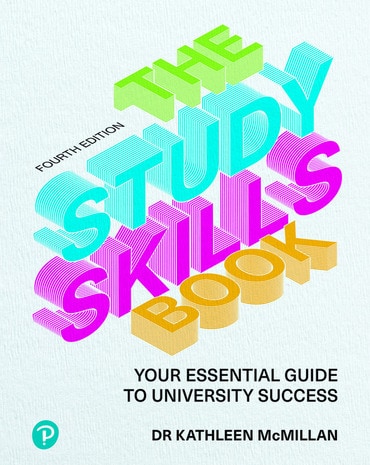Switch content of the page by the Role togglethe content would be changed according to the role

Study Skills Book, The, 4th edition
Published by Pearson (June 25, 2021) © 2021
- Kathleen McMillan University of Dundee
- Jonathan Weyers University of Dundee
£12.74
£18.99
Is there a secret to successful study? The answer is ‘Yes!'
The Study Skills Book is an indispensable resource for university students at any level or ability who want to build confidence, improve performance, and succeed in their studies and beyond…
Clear and comprehensive, The Study Skills Book covers all types of academic writing, independent learning, research, revision and exam sitting. Using tried and tested tools and techniques to help students find an individual learning style that works best for their needs, this book is every student's essential guide to the evolving university.
This new edition has been thoroughly updated and includes new approaches to ensure students can succeed in any circumstance. New and updated topics include:
- Blended and online learning – how to use these methods effectively
- Lectures and tutorials – what is expected and how to prepare
- Essays and dissertations – the best way to plan well-structured coursework
- Writing and research techniques – developing the skills to meet academic standards
- Exam revision – performing well under pressure
- Time management – meeting deadlines and managing focus
- Well-being, stress and mental health – increasing mindfulness and a growth mindset
- Development and career planning – how to strengthen employability chances
Dr Kathleen McMillan's career as an academic spans a lifetime of helping students to succeed at every level and in a wide range of topics. She has a deep understanding of the learning and study challenges that students meet at university, whether they are UK or international students at undergraduate or postgraduate level. She uses this experience to provide practical solutions and examples for most common problems in an accessible and engaging no-nonsense style. With smart tips, information, and query boxes, as well as practical tips at the end of each section, students will find answers to every question they have about learning, researching, writing, and revising.
Study smarter with The Study Skills Book.
Need help? Get in touch
